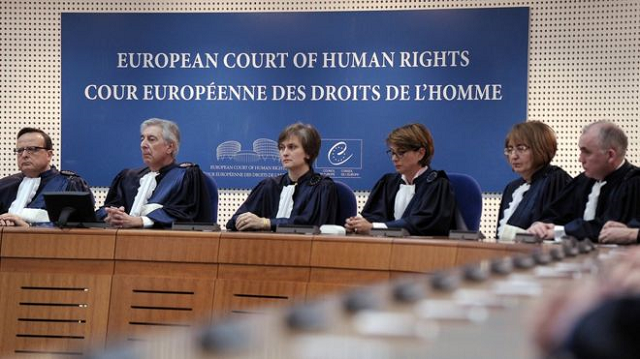European human rights court rules against defaming Prophet Muhammad (PBUH)
Such activities exceed the permissible limits of freedom of expression, says ECHR

The European Court of Human Rights (ECHR) ruled against defamation of Prophet Muhammad (PBUH) and said such activities exceed the permissible limits of freedom of expression, Anadolu Agency reported on Thursday.
Upholding a lower court's decision, the ECHR said that defaming Prophet Muhammad (PBUH) “goes beyond the permissible limits of an objective debate" and "could stir up prejudice and put at risk religious peace”.
Pakistan protests with Dutch govt over blasphemous caricature contest
The court's decision comes after an Austrian national named Mrs S. held two seminars in 2009, in which she defamed the Holy Prophet (PBUH).
According to the ECHR, the Vienna Regional Criminal Court (VRCC) found that the statements made in the seminar titled "Basic Information on Islam" were defamatory and in February 2011 convicted Mrs S. for disparaging religious doctrines.
She was also fined €480 (approximately $547) and the costs of the proceedings.
Film on life of Prophet Muhammad (PBUH) to release in Saudi Arabia
“Mrs S appealed but the Vienna Court of Appeal upheld the decision in December 2011, confirming, in essence, the lower court’s findings. A request for the renewal of the proceedings was dismissed by the Supreme Court on 11 December 2013,” the ECHR said in a statement released on Thursday.
“Relying on Article 10 (freedom of expression), Mrs S complained that the domestic courts failed to address the substance of the impugned statements in the light of her right to freedom of expression.”
During the ruling, the ECHR said it “found in particular that the domestic courts comprehensively assessed the wider context of the applicant’s statements and carefully balanced her right to freedom of expression with the right of others to have their religious feelings protected, and served the legitimate aim of preserving religious peace in Austria.”
Saudi bid to protect pre-Islamic sites upends religious dictates
The court held “that by considering the impugned statements as going beyond the permissible limits of an objective debate and classifying them as an abusive attack on the Prophet of Islam [PBUH], which could stir up prejudice and put at risk religious peace, the domestic courts put forward relevant and sufficient reasons.”
The ECHR statement also affirmed that the decision taken by the domestic court did not violate Article 10 of the European Convention on Human Rights, covering freedom of expression.


1611687109-0/image-(3)1611687109-0-208x130.webp)
















COMMENTS
Comments are moderated and generally will be posted if they are on-topic and not abusive.
For more information, please see our Comments FAQ